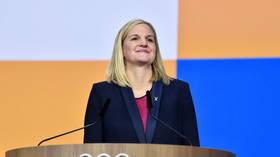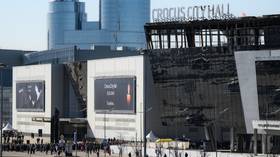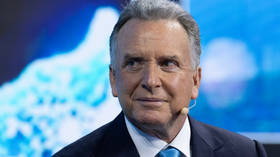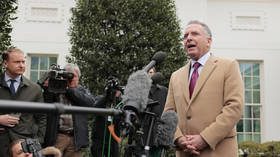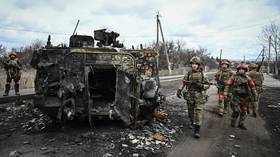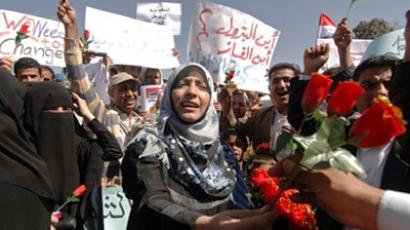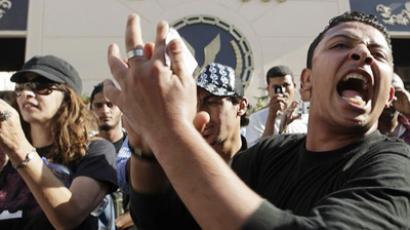Tunisians wrap up revolution with free election
The Tunisian leadership may soon be replaced for the second time since the Arab Spring began. In the country’s Sunday elections, Tunisians are forming a constituent assembly, which will rewrite the constitution and establish presidential elections.
The first results of the elections are expected on Monday, with Islamist party Ennahda poised to claim the lion's share of the vote.Tunisia’s election head Kamel Jendoubi said that voter turn-out is at almost 70 per cent. He also said that the results of the election would be announced on Tuesday.The vote will bring to an end the transitional period in the country. Current Interim President of Tunisia Foued Mebazaa assured he is ready to resign after the constituent assembly is assembled."I will recognize the results whoever wins and whatever the color of the majority [in the future assembly]", Mebazaa said, as cited by AFP. "I shall hand over power to whoever is chosen by the constituent assembly as the new president of the republic."More than 7 million Tunisians have a chance to exercise their freedom of choice and cast their votes for 217 members of the assembly. And with some 117 parties participating in the election, people have a great deal of choice.Voters in Tunisia formed long queues on Sunday, snaking their way outside the polling stations. People were grabbing the opportunity to take part in the first democratic election of the "Arab Spring".The new democratic authority will be given the power to draft new country’s constitution. It is also expected to form a new government and appoint the date of presidential and parliamentary elections.Moreover, the constituent assembly will be free to appoint a new interim president to rule the country up until the presidential elections.In January 2011, Tunisia became the first Arab country, which has been released from more than 20 years of authoritarian leadership. Tunisian ex-President Zine el-Abidine Ben Ali and his family had to leave the country for Saudi Arabia during the uprising. The success of the Tunisian revolution triggered similar processes in many other Arab countries – Egypt, Bahrain, Syria, Libya and Yemen.Political analyst Salem Al Hamdi is convinced the country has achieved most of the goals it expected.“The society has made up three independent essences,” he told RT. “The first one, to watch out for the corruption and fight it. The second one, to set up a free transparent election and it is going today. And the third one is to watch for the goals achieved. Judging from what we have seen at the polling stations, I can say that we have achieved most of what we have been expected from the revolution.”Commenting on the unusually high number of parties registered for the elections, Salem Al Hamdi said they “could not eliminate any party, otherwise it would not have been freedom”.“After 23 years of corruption and non-democracy we are in a phase when it is natural to have lots of parties in the national committee,” he said.Still having to choose from dozens of parties and thousands of candidates is overly confusing for someone who has never voted before, says local freelance journalist Sarah Mohammed Aly.“People here were actually quite troubled at the voting polls today that I witnessed myself. They were delaying their choice behind the booth,” she told RT. “The local and international journalists… could tell that there was a lot of hesitation. People were asking the same questions again.”With all that, the journalist added, people seemed to be voting for the parties with the best economy programs.“I think people just went with their gut feeling and voted for the political party that just, basically, had the best economic plan in terms of business productivity and, of course, unemployment, which is a big issue here,” Sarah Mohammed Aly explained.



